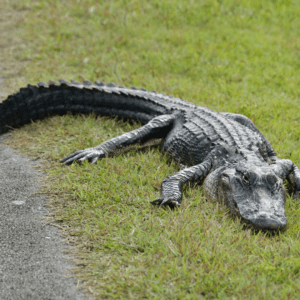Sharing Space: How to Safely Navigate Snake and Alligator Territory
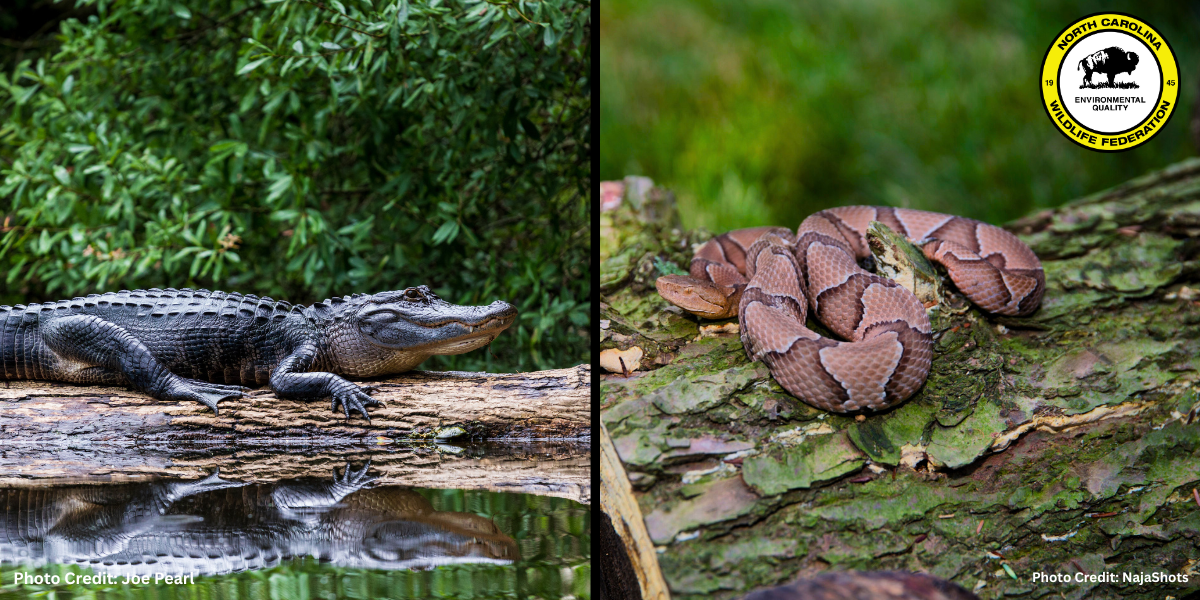
North Carolina’s diverse ecosystems are home to a wide variety of wildlife, including snakes and alligators. While these creatures may seem intimidating, they play an essential role in maintaining the balance of our natural habitats. However, it’s important to know how to coexist with them safely. In this blog post, we will explore valuable tips and guidelines from the North Carolina Wildlife Resources Commission (NCWRC) to help you avoid accidental encounters with snakes and alligators. For more information about North Carolina’s snakes and alligators, head to ncwildlife.org.
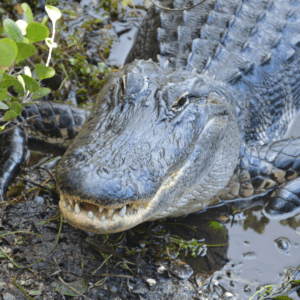
Understanding Alligators:
Alligators are naturally wary of humans and will generally avoid us. However, when they are fed by humans, they can lose their fear, potentially leading to public safety issues. It is crucial to remember that it is illegal to feed, touch, harm, harass, or poach an alligator in North Carolina. To prevent unintentional attraction of alligators, refrain from feeding other animals, such as ducks, geese, fish, or turtles, in waters where alligators reside.
Avoiding Negative Interactions with Alligators:
- Keep Pets on a Leash: When in areas where alligators are present, ensure that your pets are on a leash and prevent them from swimming, drinking, or exercising near the water.
- Be Mindful: Stay vigilant in areas where alligators have been sighted. Always maintain a safe distance and never approach an alligator, regardless of its size.

- Dispose of Fish Scraps Properly: Anglers should avoid throwing fish scraps into the water, especially in locations frequently visited by people. Take your fish scraps with you or dispose of them in designated trash receptacles.
- Enjoy Alligators from a Distance: Seeing an alligator in the wild can be a unique experience. Observe them from a safe and respectful distance of at least 50 feet, which is approximately the length of one and a half school buses.
- Reporting and Concerns: If you have any questions or concerns about alligators, you can reach out to the wildlife biologists at the North Carolina Wildlife Helpline. Additionally, instances of poaching, harm, harassment, or intentional feeding of alligators can be reported through the Wildlife Commission’s Enforcement hotline or the Turn-in Poachers program.
Understanding Snakes:
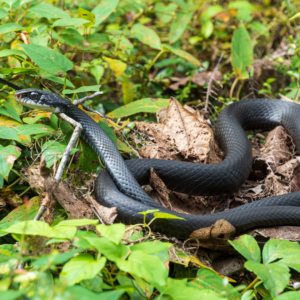
Black racer
Snakes are vital components of ecosystems, helping control rodent, slug, and insect populations. North Carolina is home to a diverse range of snake species, including several endangered or threatened ones. Here are some tips for coexisting with snakes safely:
- Give Snakes Space: If you encounter a snake, remain calm and give it plenty of room. Most snakes will leave you alone if they are not threatened or bothered.
- Encouraging Snakes to Leave: If you prefer a snake to reside elsewhere in your yard, you can gently spray it with a garden hose to encourage it to move on. Ensure that your yard is less appealing to snakes by keeping it clean, mowing the lawn regularly, closing gaps and holes, and sealing openings around doors, windows, and water pipes.
- Identifying Snake Species: If you need help identifying a snake species, you can visit HerpsofNC.org or seek assistance from wildlife experts.
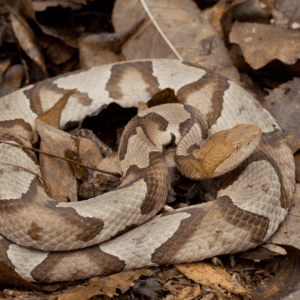
Copperhead
As residents of North Carolina, it’s important for us to share our space with the remarkable wildlife that surrounds us. By following the guidelines provided by the North Carolina Wildlife Resources Commission, we can enjoy our natural surroundings while ensuring our safety and the well-being of snakes and alligators. Let’s appreciate the beauty of these creatures from a safe distance, fostering a harmonious coexistence with North Carolina’s wildlife.
Remember, if you have any concerns or encounter wildlife-related issues, reach out to the North Carolina Wildlife Helpline for assistance. Together, we can protect and preserve our incredible natural heritage.


